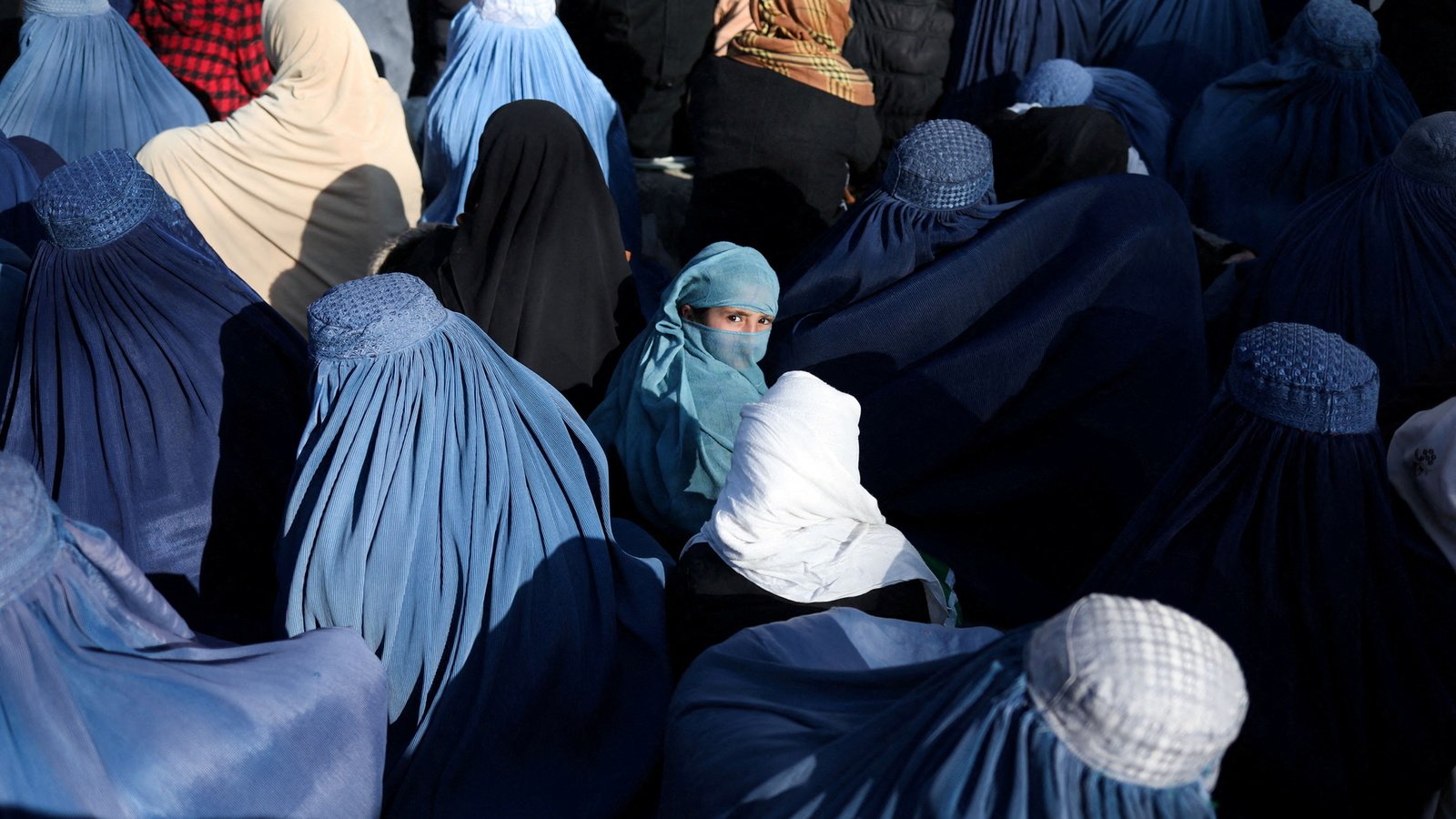Taliban authorities in Afghanistan are committing the crime against humanity of gender persecution against women and girls, Human Rights Watch said in a report released today. Since taking over the country in August 2021, the Taliban have imposed laws and policies intended to deny women and girls throughout the country their fundamental rights because of their gender.
“The Taliban’s cruel and methodical denial of the basic rights of women and girls to remove them from public life has received global attention,” said Elizabeth Evenson, international justice director at Human Rights Watch. “Coordinated support by concerned governments is needed to bring the Taliban leaders responsible to justice.”
The Rome Statute of the International Criminal Court (ICC) defines crimes against humanity as a range of prohibited acts committed as part of a widespread or systematic attack against a civilian population, with knowledge of the attack. The crime of persecution is the intentional and severe deprivation of fundamental rights contrary to international law by reason of the identity of the group based on grounds international law recognizes as impermissible. Persecution committed against people because of sex characteristics, or the social constructs and criteria used to define gender, amounts to gender persecution.
Human Rights Watch research on Afghanistan since 2021 has found that the crime against humanity of persecution targeting women and girls has been imposed through various written or announced decrees. These decrees have placed severe restrictions on freedom of movement, expression, and association; prohibitions on virtually all employment; bans on secondary and higher education; and permitted arbitrary arrests and violations of the right to liberty.
Taliban authorities should dismantle all forms of repression and discrimination that deny women and girls their fundamental rights, Human Rights Watch said.
Afghanistan is a party to the Rome Statute of the International Criminal Court. On October 31, 2022, the court authorized the ICC prosecutor to resume its investigation into the Afghanistan situation, which was first authorized in 2020.
“The International Criminal Court’s investigation in Afghanistan could provide a path toward accountability for the crime against humanity of gender persecution,” Evenson said. “Governments should ensure that the court has the resources and needed cooperation so that its prosecutor can investigate this crime alongside other grave rights violations committed.”

